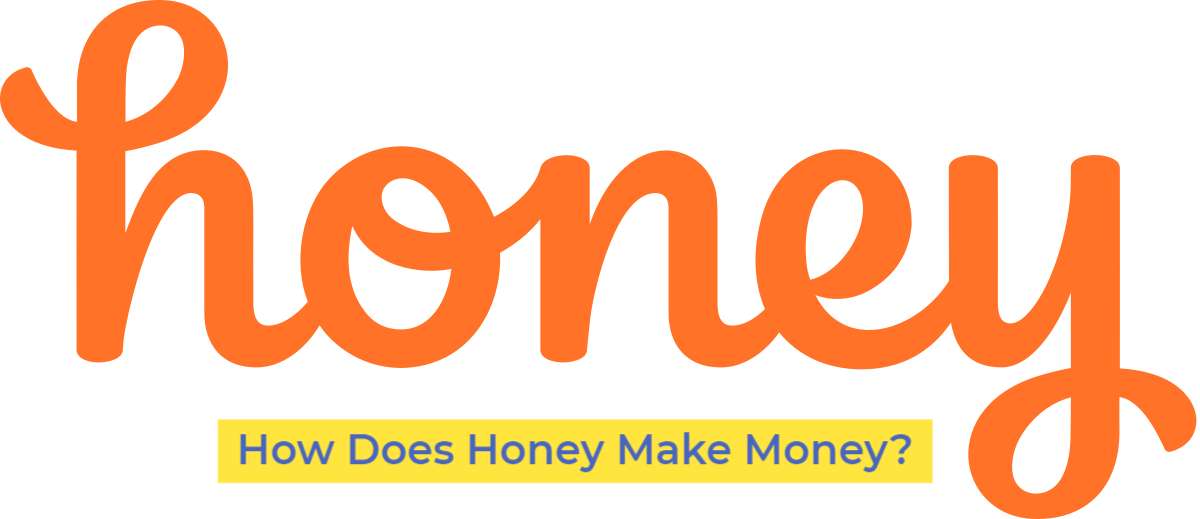Whether you’re ordering a dress or pizza online, getting discounts is a great pleasure. Even retailers also utilize this opportunity to increase sales.
Honey acts as a free browser extension that automatically finds the best deals for you. Founded in 2012 in Los Angelos, California, Honey has become a major tool for e-commerce websites. Later in 2019, PayPal acquired it with $4 billion, making the largest tech deal till now.
Presently, Honey is partnered with over 30,000 retail stores like electronics, fashions, groceries, gadgets, travel etc. With the available deals, you can save enough money during online shopping.
Honey makes money from the commission for every coupon applied during transactions in the affiliated stores. Additionally, it earns a share through its free reward program Honey Gold, redeemed later for gift cards.
Keep reading the article to know details about how does Honey make money.
What Is Honey?
In a word, Honey is a browser extension searching the web to provide you with available coupons and discounts. During the final transaction, these coupons are applied automatically to your purchase.
Honey makes it easier to get the best deals while shopping online. Rather than searching for long hours on Google, simply signup to Honey and let it find you additional discounts.
Moreover, this extension is available in Chrome, Firefox, Safari, Opera and Microsoft Edge. Are you not fond of using desktops? No problem. Honey is available for Android and iOS mobiles, too and safe to use.
How to Use Honey?
Honey works on finding ways to save your money during online shopping. In order to use Honey on the device, you need to download it first. Then it’ll ask to create an account with an email id and password or using Facebook or Google account. Once it’s done, you can start shopping online as usual for your desired items.
Let’s know about the key tools Honey offers.
- Savings Finder: Before placing the order, you need to click the Honey extension in the top bar at the checkout page. It will automatically search the web and apply a suitable coupon code on over 40,000 sites to save maximum money.
Meanwhile, Honey works with more than 30,000 stores of different categories like clothes, food, furniture, skincare products, gadgets and others. According to its extension description, users save an average of $126 annually while getting at least a 17.9% discount per order.
- Droplist: It’s a price drop alert feature for the users. Do you have any desired products from your favorite store? Then add it to Droplist and you’ll get notified whenever the product in the cart (or Amazon’s “Save for Later”) avails a good discount. However, Droplist works on particular stores like Amazon, Walmart, Target etc.
- Honey Gold: Thanks to Honey Gold, with which you can now have gift cards. It’s a loyalty program where you earn digital currency in Gold and redeem it for free gift cards. For 1000 Honey Gold, you’ll get a $10 e-gift card.
You can use these gift cards in over 5500 affiliated stores like Sephora, eBay, Home Depot, Nordstrom, Microsoft etc.
- Amazon Best Price: Honey’s extension compares the prices across Amazon sellers to provide the cheapest deal for a given product.
- Price History: It tracks an item’s price history that how much the price went up or down before. So, you can decide whether to purchase now or wait.
- Mobile App: The Honey app is known as a Smart Shopping Assistant app, available in the US, UK, AU and CA. You can download it from the Google Play Store for Android or Apple Store for iOS 9 or above. Also, remember the app and browser extension work a little differently.

How Did Honey Start The Journey?
Before proceeding, let’s learn about how Honey started its journey. The founding story of Honey is quite interesting.
Two entrepreneurs, Geroge Ruan and Ryan Hudson, founded Honey in October 2012 in Los Angelos. Before that, Ruan had multiple startup experiences as both an employee and founder.
In contrast, Hudson was a college graduate at Cornell and did his MBA from MIT. He took the safe career path working in technology and VC-related jobs like an analyst, associate and project manager.
Honey’s idea came when Hudson was looking for coupon codes to buy pizza online for his children. But he wasn’t able to find one fair deal on the internet. So, he came up with a prototype of a Chrome extension that could automatically search discount coupons.
Initially started with $100,000 capital, Ruan and Hudson put another $50,000 each to complete the Honey prototype. However, the app’s launch was not as sweet as the name due to an accident. An engineer was hired for bag testing, accidentally uploaded the extension link on Reddit. Although launched unexpectedly, it became a great success.
Within a year, Honey obtained 200,000 users with over 100 affiliated stores. But as they were offering deals for free, there was no revenue at the beginning. Also, no one was interested in investing money in a startup.
In the meantime, Hudson started doing another job in OpenX. While Ruan, along with some team members, kept working on Honey.
But you know team perseverance is the key to success. For the next few years, Ruan and Hudson continued working on upgrading Honey and eventually, they added more users.
One of them was an employee of Anthos Capital, Silicon Valley, who later introduced Honey to their managing partner, Bryan Kelly. Thus, Anthos Capital became Honey’s early investor raising $26 million in March 2017.
With more investments, Honey hired more employees and started developing. It took the company to new heights, and soon, it signed deals with more profitable retailers. Not to mention, Honey’s extension helped increasing sales by offering great discount coupons to the consumers.
However, in 2019, PayPal announced acquiring Honey with $4 billion in cash. It’s still the largest tech exit in the history of Los Angelos. Ruan got $900 million from the deal, whereas Hudson received around $600 million.
Unfortunately, the company’s journey hit a roadblock when RetailMeNot sued Honey for a patent infringement claiming it copied tech stack. At the same time, Amazon alerted its user about Honey’s security issues leading them to uninstall the app.
But surprisingly, Amazon has a similar version of Honey called Amazon Assistant. It’s an extension tool that finds various deals about products. Therefore, maybe it was their PR play to remove Honey from the competition.
Now Honey has six offices all over the US and Australia. With more than 700 employees and 17 million daily users, the company is ruling the market.
How Does Honey Make Money?
Initially, Honey was not able to bring any revenue. But soon, with different partnership deals, it started making profits.
However, the company offers its tools and features to users for free. So, how does Honey make money? It makes money mostly from its affiliated program as commission fees and cashback program as Honey Gold.
Let’s dive into details.
Whenever a user applies a Honey’s referral code or coupon at checkout, Honey receives a commission fee from the merchant partner. It’s called affiliate commission as a percentage of the total sales price.
The commission amount depends on the deal applied by the user. According to Honey, they charge 0.5%-10% from the partnering stores. Though for higher selling categories like luxury fashion products, the commission fee charge goes up to 20%.
- Further, Honey doesn’t work directly with the merchant companies. Rather they work with affiliate networks that represent the direct companies like Nike. Such affiliate networks work as mediators promoting their services and negotiate deals with the partner who is Honey.
In short, Honey’s business model is based on affiliate marketing. Currently, they work with more than 20 brands such as eBay, Groupon, ShareASale, Commission Junction, Rakuten etc.
- The company also has developed free tools and programs, including a cashback program for user’s benefit. That helps Honey to drive more customers and eventually grow sales.
For example, the Droplist feature compares the prices with Amazon sellers and notifies the user about a price drop. Consequently, the customers can save some money on the desired item.
On the other hand, Honey shares a commission to its users through a cashback and reward program Honey Gold. After activating it, they earn gold while shopping and redeem them for gift cards. Moreover, they get up to 20% cashback with Honey Gold and even earn a larger amount with Honey Gold bonuses. Thus, it encourages consumers to use this platform more.
Honey Business Model
Though initially, Honey faced loss than profit. But eventually, many venture capitals agreed to invest in this startup that helped it to make money. Some of them include Anthos Capital, Plug and Play, Wonder Ventures, Cendana Capital and ten more.
According to CrunchBase, Honey raised about $31.8 million during the funding stage in four rounds from venture capital. However, the highest and last valuation was in 2019, when PayPal publicly announced to acquire Honey. They purchased the company with $4 billion, mostly in cash.
In order to evaluate how does Honey make money, you need to understand its business model. It solely depends on the number of customers using it.
In the fiscal year 2018, the platform reported a significant increase in users. It helped Honey generating a revenue of around $100 million with a 100% growth rate. To date, Honey is still making a profit having more than 17 million users.
Conclusion
For the last few years, Honey has gained much popularity among customers. After all, everyone loves to get an additional discount on their purchases. Honey makes it possible by automatically searching and applying the best deal at checkout with one click. At the same time, it saves a lot of time for finding the coupon codes.
Moreover, this browser extension is free to install and easy to use. Honey makes money by helping users earn rewards and find savings while shopping online. Whether it’s affiliate commission fees or sharing Honey Gold reward commission, Honey always maintains transparency to generate revenue.
However, Honey collects information which you share directly while using the app or desktop extension. But neither it sells your private data to third parties nor contains spyware or virus. Altogether, Honey is a legit and safe money-saving tool for online shopping.


